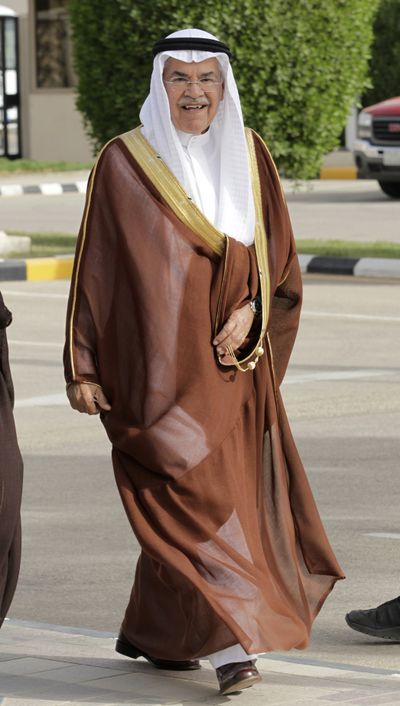Saudis warned U.S. about oil speculators
Supply plentiful, officials say in cables

WASHINGTON – When oil prices hit a record $147 a barrel in July 2008, the Bush administration leaned on Saudi Arabia to pump more crude in hopes that a flood of new crude would drive the price down. The Saudis complied, but not before warning that oil already was plentiful and that Wall Street speculation, not a shortage of oil, was driving up prices.
Saudi Oil Minister Ali al-Naimi even told U.S. Ambassador Ford Fraker that the kingdom would have difficulty finding customers for the additional crude, according to an account laid out in a confidential State Department cable dated Sept. 28, 2008.
“Saudi Arabia can’t just put crude out on the market,” the cable quotes al-Naimi as saying. Instead, al-Naimi suggested, “speculators bore significant responsibility for the sharp increase in oil prices in the last few years,” according to the cable.
What role Wall Street investors play in the high cost of oil is a hotly debated topic in Washington. Despite weak demand, the price of a barrel of crude oil surged more than 25 percent in the past year, reaching a peak of $113 May 2 before falling back to a range of $95 to $100 a barrel.
The Obama administration, the Bush administration before it and Congress have been slow to take steps to rein in speculators. On Tuesday, the Commodity Futures Trading Commission, a U.S. regulatory agency, charged a group of financial firms with manipulating the price of oil in 2008. But the commission hasn’t enacted a proposal to limit the percentage of oil contracts a financial company can hold, while Congress remains focused primarily on big oil companies, threatening in hearings last week to eliminate their tax breaks because of the $38 billion in first-quarter profits the top six U.S. companies earned.
The Saudis, however, have struck a steady theme for years that something should be done to curb the influence of banks and hedge funds that are speculating on the price of oil, according to diplomatic cables made available to McClatchy Newspapers by the WikiLeaks website.
The cables show that the subject of speculation has been raised in working group meetings between U.S. and Saudi officials, in one-on-one meetings with American diplomats and at least once with former President George W. Bush himself.
The Saudi concerns about speculation have a particular sheen of credibility. Saudi Arabia is the world’s largest exporter of oil, serving dozens of clients in addition to the United States. As such, it carefully tracks the trends that drive oil prices, which send it billions of additional dollars with every increase.
But in the cables, Saudi officials explain that they have two primary concerns about artificially high crude prices: that they’ll dampen the long-term demand for oil and that the wide price swings typical of commodity speculation make it difficult for them to plan future oil field development.